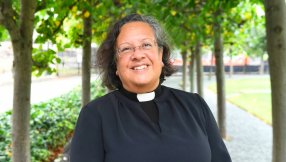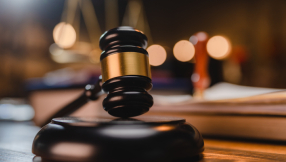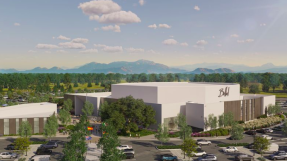More churches attacked in Nigeria violence
The latest attacks came in the neighboring state of Bauchi, the state police commissioner said in a statement. At least 11 people, including police and army personnel, were killed in the checkpoint attack, the commissioner has reported, although no casualties have been reported from the church attacks.
President Jonathan visited numerous bomb sites in Kano City Sunday, as well as the local hospital to see victims and their families to offer his condolences and words of comfort.
The terror attacks by Islamic group Boko Haram hit eight separate sites and have devastated the local communities, resulting in a curfew being put in place between 7pm to 6am in the region.
President Jonathan posted this message on his official Facebook page following his Kano visit: “The message I had for the people of Kano is the same message I have for all Nigerians: A terrorist attack on one person is an attack on all of us.”
The wave of terror attacks has seen bombings as well as shootings at locations including police stations, the passport office, state security headquarters and the immigration office.
Over recent months the group has increasingly targeted government buildings as well as Christian churches and civilians in an array of attacks killing hundreds.
Nigeria has been suffering from religious violence for years, with attacks often occurring during the Christmas season. At least three dozen people were killed in a string of bombings last month. Since December, more than 80 Christians have been killed by radical Muslims, according to International Christian Concern (ICC), an advocacy group.
Pastor Ayo Oritsejafor, Christian Association of Nigeria’s president, recently decried the Nigerian government's failure to protect Christians from attacks and accused some security agents of taking sides.
"The security agencies are polarized along religious lines," he said. "Even when the security agents have information (concerning security measures to be taken against Boko Haram), some of them pass the information to these criminals. This is because some of the security agents are more loyal to their religion (Islam) than to Nigeria as a nation."
It also emerged Wednesday that the man believed to be behind the deadly Christmas bombings managed to escape authorities after being captured.
"I think some people are trying to change the demographics on [the] ground; to do everything to move them out of the North," the church leader said, insisting that politics were at play. Oritsejafor claimed that Muslim politicians were sponsoring young people – members of Boko Haram – to do the killings.
That concern was confirmed by ICC’s religious manager, Jonathan Racho, who told CP that even President Goodluck Jonathan suspects his government has been infiltrated by Muslim extremists.
Jonathan has been facing mounting criticism for not providing adequate protection for the nation's Christian community. Oritsejafor addressed his president in the interview: "You must muster the political will to make strong decisions. Any of the heads of the security agencies that are not performing, you should remove."
The U.S. Commission on International Religious Freedom (USCIRF) has also found evidence to support the charge that President Jonathan could do more to protect vulnerable Christians and other citizens that have found themselves under attack.
"The United States must vigorously press the Nigerians to address the violence through law enforcement and prosecutions, such as
during meetings of the U.S.-Nigeria Bi-National Commission," the organization’s chair, Leonard Leo said recently.
Open Doors listed Nigeria 13th on its list of nations in which Christians are most persecuted. A solution to the problem may start with Muslim-Christian cooperation, Dykstra said, but the terror sect will not be stomped out until Jonathan’s government takes greater control of the situation.
"I think Goodluck Jonathan is feeling the pressure and the heat and [Christians should] pray for him to make decisions so that this doesn't turn into a major civil war," Dykstra said.
Boko Haram, which translated means “Western education is forbidden,” wants Islamic Shariah law to be imposed across the country. In recent months the group has launched a bloody campaign of violence.
Nigerian police have released a statement saying that four police stations were bombed across the city, and that the headquarters of the State Security Service (SSS), as well as passport and immigration offices were also targeted.
A Boko Haram spokesman, Abul Qaqa, has also announced to journalists that it had carried out the attacks because the authorities had refused to release group members arrested in Kano.













